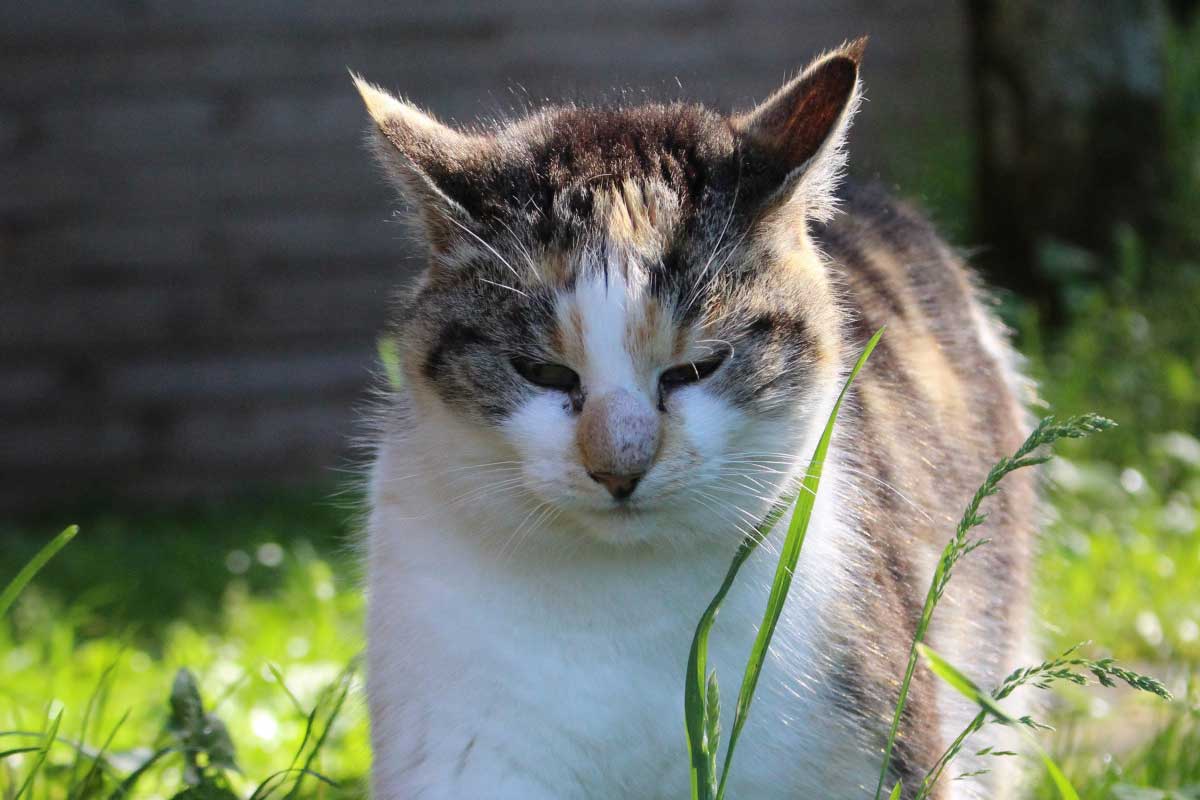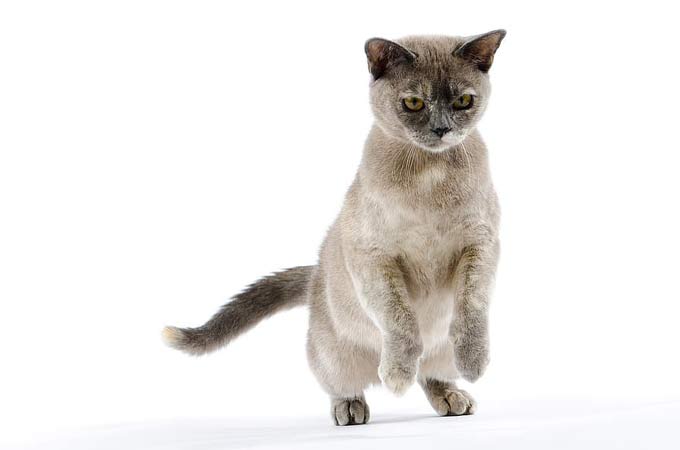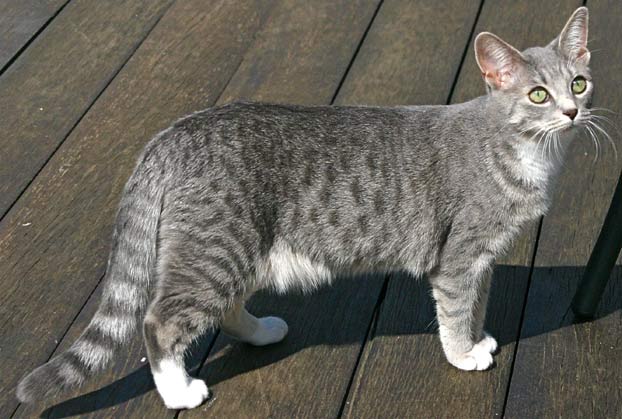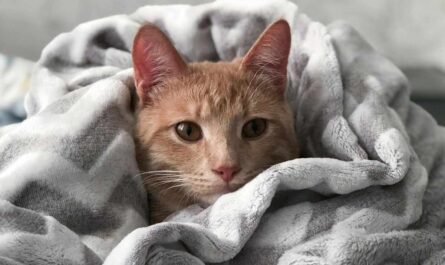The cat is not eating- a common phenomenon every pet owner experiences sometimes. Learn about why, and what you can do. A cat’s indifference towards food can stem from mere fussiness or serve as a warning sign of underlying illness. In either case, these hunger strikes can wield grave consequences on your feline companion’s health. Therefore, it is imperative to unravel the enigma behind your cat’s altered eating habits. Let’s delve into the reasons behind your cat’s food boycott and explore potential remedies.
Why Cat Not Eating: Health-Related Quandaries
The loss of appetite in felines can be an ominous indicator of various health maladies, See why thousands of cats love BoxCat, including:
Kidney Disease: Particularly prevalent among older cats, kidney disease ushers in discomfort, marked by severe nausea, vomiting, and alterations in thirst and urination. Nauseous cats may initially appear interested in food but may ultimately decline it, accompanied by drooling and frequent lip-licking.
Congestive Heart Failure: This condition induces fatigue and breathlessness, impairing your cat’s inclination towards eating.
Gastrointestinal Issues: A myriad of gastrointestinal complications, encompassing parasites, pancreatitis, inflammation, colitis, acid reflux, irritable bowel disease, cancer, and indigestion, can culminate in a loss of appetite.
Respiratory Ailments: Respiratory troubles may compromise your cat’s sense of smell and breathing capacity, in turn deterring its appetite. Congested nasal passages can render food odorless to felines, diminishing their culinary interest. Upper respiratory diseases may obstruct your cat’s vision and olfactory senses, while lower respiratory tract diseases can impede breathing. Bird accessories on Amazon.
Dental Troubles: Oral problems, a common affliction in cats, can elicit appetite loss due to mouth discomfort. An assortment of oral issues, including gum disease, abscesses, broken teeth, inflammation, tumors, and other sources of mouth pain, may lead to altered eating habits.
Side Effects and Nausea
Post-vaccination, some cats may endure mild, transient nausea for approximately 48 hours. Similarly, medications such as antibiotics or chemotherapy can induce nausea and appetite loss. When your cat exhibits these symptoms while under medication, consulting your veterinarian is advised to explore appetite-stimulating solutions.
Culinary Preferences
Felines have earned a reputation for their selective and capricious eating habits. While pickiness remains a plausible explanation, it should not be the sole assumption. Your cat might abstain from food due to specific food characteristics such as shape, texture, smell, temperature, or flavor. Furthermore, cats necessitate time to adapt to new food varieties. Cat accessories on Amazon. An abrupt dietary shift can deter their willingness to eat. If food manufacturers alter flavors or ingredients or if the food becomes spoiled, your cat may refuse their usual sustenance.
Stress-Induced Appetite Loss
Cats thrive on routine and are susceptible to stress when confronted with alterations in their environment or daily routines. Stress-induced appetite loss is a common byproduct. Stressors encompass familial modifications like the introduction of new family members, be they human or animal, visitor arrivals, or the absence of a cherished individual. Environmental shifts, such as furniture rearrangement or relocation to a new abode, necessitate adaptation periods. Additionally, mealtime may serve as a stress trigger for pets, particularly in multi-pet households. Shy cats may perceive mealtime as a threatening encounter due to the presence of other animals, inhibiting their desire to eat.

The Aging Feline
In senior cats, a diminished sense of smell may contribute to waning interest in food. Nonetheless, this indifference is frequently overshadowed by the discomfort attributed to age-related conditions like kidney and dental diseases, which are prevalent in older cats. These physical ailments are often the primary culprits behind appetite reluctance.
By unraveling the intricate tapestry of your cat’s reluctance to eat, you can embark on a journey to restore their appetite and well-being. Remember, your veterinarian is your ally in this quest, equipped with the knowledge to decipher the enigma and devise a plan to nurture your feline friend back to health.
Why not eating is a problem for cats
The refusal to dine is a concerning conundrum, particularly when it pertains to our feline companions. In the realm of animals, an insufficient intake of nourishment sparks a precarious predicament. When creatures abstain from their meals, their metabolic sustenance relies upon stored fat reserves, which necessitates a critical processing step by the liver—a step contingent upon adequate protein stores.
A Dire Consequence: Hepatic Lipidosis
In the unfortunate circumstance where a cat exhibits rapid weight loss due to appetite cessation, the protein reservoirs are soon depleted, rendering the liver beleaguered by the surplus of fat. This detrimental consequence culminates in a perilous condition known as hepatic lipidosis or fatty liver disease. This condition casts a long shadow, potentially leading to liver failure, a menacing threat to your feline companion’s well-being.
Notably, overweight cats loom particularly large on the precipice of hepatic lipidosis. Their excessive fat content accelerates the liver’s descent into this treacherous territory. The liver, a vital organ, holds sway over the cat’s vitality. Any compromise to its function may usher in weakness, lethargy, and jaundice, demanding immediate intervention from your trusted veterinarian.
What to do when your cat won’t eat
The refusal to partake of sustenance carries weighty consequences for your cherished feline friend. Cat accessories on Amazon. Swift identification of the underlying cause is paramount to initiate the remedy posthaste.
Guiding Your Cat Back to Eating
Once the root cause is unearthed, a myriad of strategies may entice your feline to resume eating:
Appetite-Stimulating Foods: Incorporate tantalizing morsels such as liver, canned tuna, fish oil, broth, or a softly-cooked egg. Exercise caution, offering these delectables in modest quantities to prevent potential imbalances in vitamins and nutrients. Dog accessories on Amazon.
Introduce Variety: Embark on an odyssey of flavors, textures, and shapes. Gradual transitions should be employed to shield your cat’s digestive system from perturbations.
Harness the Power of Aroma: A cat’s gustatory inclination is intricately linked to its olfactory senses. By embracing aromatic canned wet food or gently warming it, you can elevate the appeal of the meal.
Create a Serene Dining Environment: Bestow upon your feline a serene and secure dining locale, free from disturbances emanating from family members or fellow pets. Tranquil solitude often encourages meal consumption.
Prioritize Freshness: If your cat exhibits a proclivity for delaying meal consumption, remove uneaten food promptly. Leftovers can transmute into hardened, unpalatable remnants, potentially fostering aversion.
Seeking Veterinary Guidance
In instances where your cat’s eating behavior metamorphoses, engaging your veterinarian is of paramount importance. Your trusted veterinarian can provide guidance on what to feed a reluctant cat with health-related feeding difficulties. Never subject your cat to food deprivation in an attempt to compel them to favor a particular diet. The repercussions of appetite aversion in felines are far-reaching, necessitating the primacy of food consumption.
The Clarion Call to the Veterinarian
Vigilant monitoring of your cat’s dietary conduct is requisite. Should a hunger strike persist beyond a meal or two, it warrants prompt communication with your veterinarian. Cats, as a general rule, should not endure periods of fasting exceeding 24 hours. Concomitant with appetite loss, vigilant observance of symptoms such as vomiting, diarrhea, lethargy, or respiratory distress is imperative.
The Closing Symphony
While the discerning palate of cats is well-documented, abrupt cessation of eating encompasses an array of underlying causes. The potential for accompanying health issues or stress underscores the gravity of food aversion in felines. See why thousands of cats love BoxCat. Therefore, vigilant observation of your cat’s dietary habits is essential, and any deviation persisting beyond a day necessitates expeditious consultation with your veterinarian. The swifter the identification of the root cause, the sooner the healing journey can commence, rekindling the vitality of your cherished feline companion.
More Interesting Articles
- 13 Very Interesting Facts About an Orange Tabby Cat
- Maine Coon Cat Breed: Traits, Profile, Personality, Facts
- 13 Interesting Fun Facts about Siamese Cats & Kittens
- 7 Amazing Light Brown (Beige) Cream Cat Breeds
- 10 Amazing Blue Cat Breeds with Short or Long Hair
- 11 Interesting Facts about a Cream Cute Tabby Cat
- 13 Common Symptoms of A Dead Kitten Inside A Cat
- Neutering Male Cats: Behavior and Recovery Guide
- How to Help a Choking Cat: Signs, Precautions, Tips
- Cat Dry Heaving: Cat Gagging Causes and What to Do
- Why is My Cat Panting? Symptoms, and Treatment
- 26 Tips How to Train A Cat Not to Scratch You or Anything
- Everything You Need to Know about Owning A Cat: 23 Facts
- How to Easily Train Your Cat to Use Toilet in One Week
- 10 Steps How to Train A Kitten to Use A Litter Box in a Week
- 10 Tips How to Train A Cat to Walk On a Leash in A Week
- 6 Steps How to Train A Cat Not to Bite Your Hand or Skin
- 6 Steps How to Get My Cat to Stop Jumping on the Counter
- 8 Tips on Introducing A New Dog to A Cat Step By Step
- 27 Tips How to Train An Outdoor Cat to Stay Home



